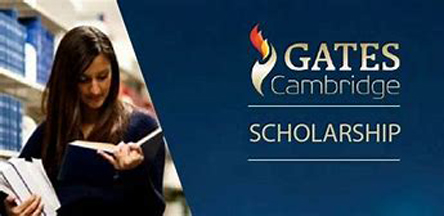NEW JERSEY (TIP) : Two Indian Americans — Sadhana Lolla and Ishan Kalburge — are among 26 academically outstanding and socially committed US citizens selected to be part of the 2024 class of Gates Cambridge Scholars at the University of Cambridge.
The US Scholars-elect, who will take up their awards this October, are from a wide range of backgrounds, according to a media release. Nineteen are women, six are men and one would prefer not to specify. Thirteen will pursue PhDs while 13 will undertake one-year master’s degrees.
“In the rural Indian village that my family calls home, I grew up witnessing my grandmother labor endlessly without assistive technology,” says Sadhana Lolla, who plans to pursue an MPhil in technology policy.
“Her experiences, and those of millions of women, elderly, and people with disabilities worldwide, underpin my dedication to pursue artificial intelligence solutions that bring robotic assistive technology to underprivileged communities.”
“My background as a machine learning researcher and roboticist has enabled me to deeply appreciate the transformative power of technology, while also recognizing that technologists and governments must work together to leverage cutting-edge artificial intelligence to uplift those who need it the most,” she says.
“By pursuing the MPhil in technology policy,” Lolla says, “I hope to bring regulators, researchers, and the technology industry together to design policy solutions that promote bias-free, robust, and trustworthy artificial intelligence while spurring innovation.”
“I also hope to uplift the voices of vulnerable communities in conversations about technological development and deployment,” she says. “I’m thrilled to join the Gates Cambridge community and work together with such a diverse and talented group of peers to improve the lives of others.”
Lolla previously studied Computer Science at the Massachusetts Institute of Technology.
Ishan Kalburge, who will do a PhD in engineering, will look at how the human brain forms internal representations of uncertainty.
He hopes to develop computational models that emulate such representations to advance our understanding of human cognition in health and disease and pave the way for developing trustworthy and energy-efficient artificial intelligence.
While at Cambridge, he will also work to expand STEM outreach initiatives in under-resourced communities and lead dialogue on developing responsible AI regulatory policies.
Kalburge is also President of the Johns Hopkins Biomedical Engineering Society. He says the initial motivation for his research is a personal one: “When my grandfather was diagnosed with Parkinson’s Disease, I was driven to deepen my understanding of human cognition to develop solutions that could help people like him,” he says.
At Johns Hopkins University, he pursued a BS in Biomedical Engineering, Applied Mathematics and Statistics, and Economics, developing interdisciplinary skills to achieve his goals. Through his research, Kalburge explored the largely unknown processes underlying human decision-making under uncertainty.
“In my free time, I hope to work on my jazz improve skills on the piano!” he says.
The 26 US scholars-elect will study and research subjects ranging from how magma shapes human life to how to create the necessary infrastructure to bring robots to marginalized communities.
The prestigious postgraduate scholarship program – which fully funds postgraduate study and research in any subject at the University of Cambridge – was established through a US$210 million donation to the University of Cambridge from the Bill & Melinda Gates Foundation in 2000.
Since the first class in 2001, Gates Cambridge has awarded 2,182 scholarships to scholars from 112 countries who represent more than 700 universities globally (more than 200 in the USA) and around 90 academic departments and all 31 Colleges at Cambridge.
Two Indian Americans bag Gates Cambridge Scholarship at the University of Cambridge

Sadhana Lolla and Ishan Kalburge — are among 26 academically outstanding and socially committed US citizens selected to be part of the 2024 class of Gates Cambridge Scholars at the University of Cambridge.